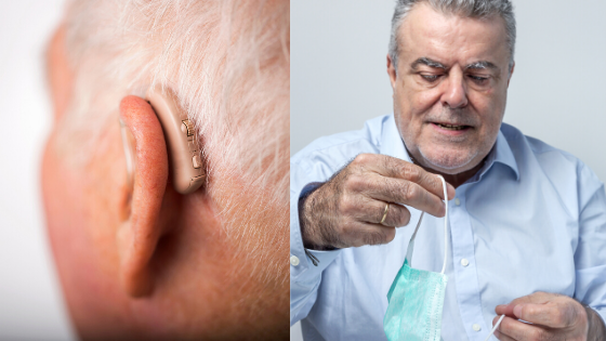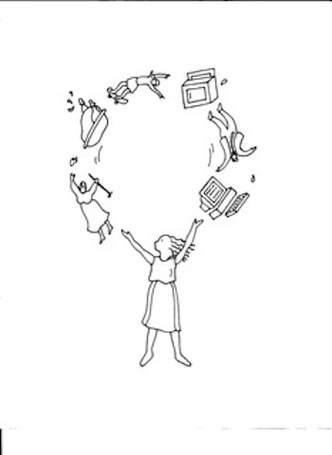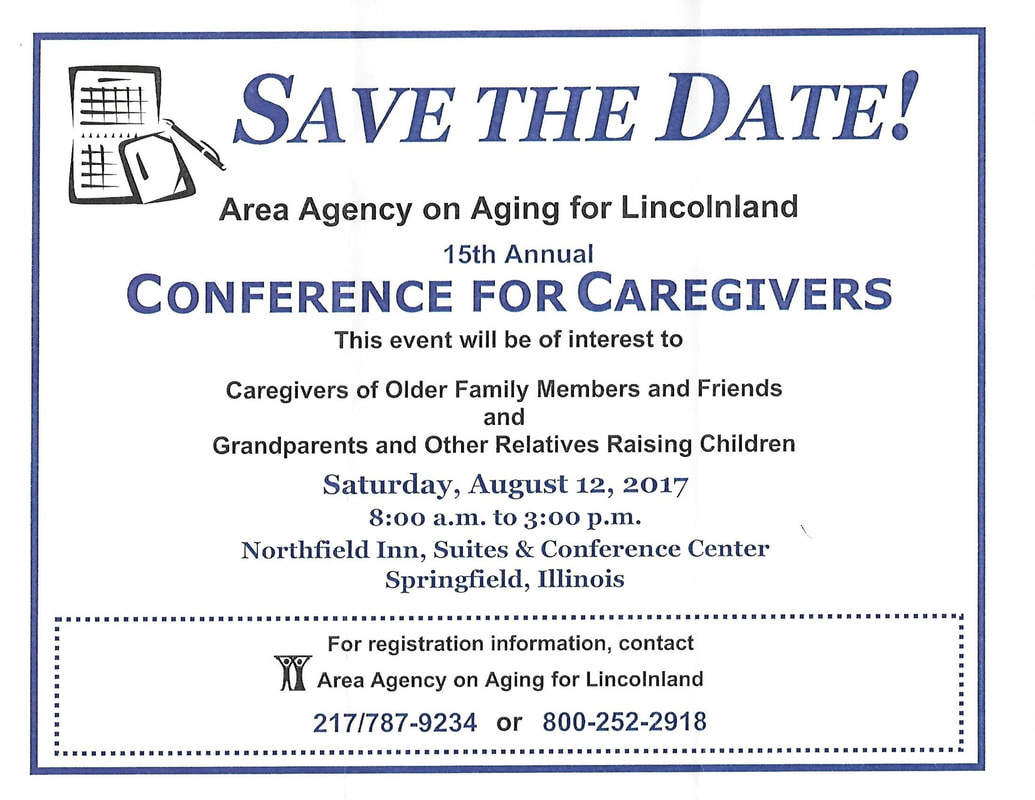|
Covid-19 has required us to protect ourselves by wearing masks. Sadly, masks interfere with hearing aids. Thus, those who want to hear must contend with protection that makes hearing aids come loose, fall out of the ear, or tangled with the hearing device. That frustration could lead to quitting the mask or quitting the hearing aids.
We need both. Numerous research articles have documented the connection between maintaining one’s hearing and keeping one’s memory. Hearing aids are for more than hearing. On the other hand, the CDC guidelines are quite strict about wearing a mask to protect ourselves from Covid-19. We will need masks until we can develop an effective treatment and or a vaccine. That could be years. In Help! My Face Mask Is Getting in the Way of My Hearing Aid, AARP offers some ideas. While these might do for now, we should consider developing an easy-to-use, simple, device that does the job. If we can develop safety pins and zipper; we make a better device.
0 Comments
This is the first of a three part series about the often-heard advice to caregivers to “take care of yourself”.
What does that mean? Since elder caregiving is relatively new, many caregivers aren’t sure. Let’s begin with the word self care; it means considering yourself as part of the caregiving plan. Your health and mental well-being are a vital part of providing care. Think of your contribution in other ways: wouldn’t you take care of equipment used to care for the elder? Wouldn’t you make sure to have enough supplies on hand? Wouldn’t it be hard to provide care without equipment and supplies? Think how much harder would it be if you weren’t able to provide care? You’re the most important part. Caregivers may believe that they should put their needs aside: no! That’s like pouring yourself out without putting anything back. Such a belief leads to caregiver burnout. Some caregivers burnout emotionally, others develop health problems, and still others find their families are disrupted. All are symptoms of burnout. Many symptoms go unrecognized. Now that you are aware, you can be alert to the influence of caregiving on your life. Some caregivers believe that the entire task is theirs alone; not necessarily. Part of self care is letting go of that assumption. We ask for help in other parts of our lives; accountants, plumbers, physical therapists, or lawn crews. No one believes these helpers take away our responsibility; they contribute to our successful process. What do you do in a typical day? How many of those tasks require direct interaction with the elder? Who else could do them? For example; laundry must be done. Why does it have to be you? Does it matter to the elder who does it? Letting others into the care process is part of letting go. Letting others in is part of self care. Self care can mean admitting to yourself that you feel certain things in response to caregiving. Some of those feelings are not too “nice”. Frustration, anger, despair and sadness are all parts of the caregiving journey. If a friend came to you admitting to these feelings would you send them away? Perhaps you would listen to them and sit with them. Sadly, I meet caregivers who whisper their negative feelings if they say anything at all! Part of self care is becoming your own “best friend”. You and that self need to talk to each other. Admitting to those not-nice feelings doesn’t make bad things happen. In fact, it allows you to let out some of the pressure behind those emotions. Self care begins with recognition of one’s value, affirmation and support for the caregiver. To learn more, take our course: Preparing to Parent Your Parent or call (217) 787-5866 Senior depression presents several problems. It appears as “mild” even if it doesn’t affect seniors mildly. Depression symptoms may surface as physical complaints. Seniors grew up in an era when receiving mental help = CRAZY. Each of those problems presents a barrier to treatment. How does a caregiving adult child get a senior to accept the help they need? They really need it. Even though seniors account for 13% of our population, they comprise 18% of all completed suicides! Our society must take senior depression seriously. Medication may not be enough. Religion/spirituality (R/S) may be a treatment pathway that seniors can accept.
Religious and Spiritual Factors in Depression: Review and Integration of Research is a review of literature: a look at 444 research articles on the subject of R/S. All studies were reviewed for their methods. 178 studies were found to be rigorously designed and their data analyzed. Most studies found that seniors who a religious or spiritual practice did better at managing depression or facilitating its resolution. The review found that R/S beliefs may be used to cope/adapt to stressful life circumstances. Seniors certainly face those; life-changing illness, loss of career, loss of home, and loss of spouse/friends. Their lives need ways to adapt. A second part of this study, found a lower likelihood of mood or psychiatric disorder for those who regularly attended religious services. There was one caveat; if the R/S tradition was very orthodox, the senior may feel more judged than supported by their R/S tradition. You know your senior. You know what type of R/S practice they hold. If there is a supportive faith community; try it. This same review of literature noted that “pastoral counselors spend 140 million hours (doing) therapy each year”. That’s more hours than provided by the American Psychological Association! Since it is part of the counseling media, ask for this help for your senior. Does it help? The greatest medicine is no good if your senior won’t take it. The same applies to counseling. If it’s socially acceptable to meet with the pastor; use that method. Health and Spirituality, examined the relationship between health and spirituality. Researchers found that the modern, western era’s response to illness/depression was a departure from other cultures and most of history. In other times, religion was considered an integral part of healthcare. Major illnesses focus the patient’s attention on ultimate meaning, purpose and transcendence. The Nurses’ Study found that women who attended weekly religious services had a lower mortality rate that those who never did. Regular religious attendance was associated with a lower rate of depression. Wow! Does our society need to return to an integrated/ whole person strategy to effectively treat seniors? I believe we should. Have we become too quick to provide pills to our seniors? The Center for Medicare and Medicaid (CMS) has a “rule of 4”. If the senior is taking more than 4 kinds of pills, their risk of medication conflicts and issues increases. While medicine might be helpful, other strategies could make a difference without raising further medication conflicts. How many pills is your senior taking? Is it a constant battle to get them to take medicine? I suggest you discuss the idea of trying regular religious attendance and pastoral counseling instead. As you discuss this method with the doctor, please keep this study result in mind. One study gave cancer patients and their doctors a list of 7 factors to rank when making medical decisions. The patients ranked faith in God 2nd. The physicians placed it last. Thus, it is the adult child/caregiver who must advocate for alternative approaches. Always discuss changes with the doctor. Try adding God; He just might help your senior. Who knew that art might make a critical difference in the treatment of elder depression? In 2001, Dr. Gene Cohen conducted the first experimental study of seniors in cultural programs and its effect on general health, mental health, and social activities: Creativity and Aging.
This study has been citied repeatedly in other works and became a foundation for senior programming. As I researched elder depression, I was struck by three things in relation to this study. First, the date, Creativity and Aging was only done in 2001. We have drawn since we had cave walls. What took us so long to consider the relationship between creative arts and seniors achieving a healthier quality of life? How’s that for an outcome? Second, the design of the study was notable because it included a control group. How else does one obtain hard data? Once the comparisons were made, it was clear; the arts make a difference. We worry about rising health care costs. Perhaps, we could lower direct healthcare costs by utilizing proven cultural programs. If, as this study demonstrates, cultural programs achieve true health promotion and disease prevention effects, why aren’t we using this method to address senior health issues? Third, the seniors studied were OLDER that the average life expectancy! Wow, does that mean we could achieve even more positive health outcomes if we started cultural programming earlier, on younger seniors? It’s something to think about. Medical costs are expanding the way we do things now. I believe it’s time to consider other methods as additions to direct medicine. Think about it. This year, on August 12th, Senior Sidekicks is honored to present at the 15th Annual Conference for Caregivers on the topic of depression. Our mission is to support elder caregivers so this opportunity is especially meaningful to us. Senior Sidekicks will discuss elder depression as well as its affect on the caregiver’s health and state of mind. The Conference for Caregivers is unique in several ways: It was one of the first in the country to highlight the role of elder caregivers. While there is some national conversation about our aging population, its impact on caregivers has not been on the radar. Second, this conference has been self-supporting since its inception. Even through past budget issues, this conference continues on its own. Third, the conference offers respite services to those caregivers who need it in order to attend. How many other caregiver-oriented functions offer respite? Fourth, this conference surveys caregivers who attended on topics they request. Caregivers shaped this year’s conference. We look forward to seeing you! A friend of mine recently asked about what to bring someone in a nursing home who “had a breakdown” following the death of the partner. One of my replies was; “bring yourself”. Aging doesn’t grant us immunity from depression, life happens and we suffer losses. These situations often lead to feeling blue or depressed. That would be true for any age group. However, our society equates age with being depressed. We need to advocate for a change in that viewpoint.
Why do older people often seem depressed?
When these things occur, does medicine consider treating the depression? More than once I have heard medical personnel begin their discussion with the words, “Well this person is elderly.” Age is a stage of life, not a disease. A person who suffers from depression is no different than a person who suffers from anything else. We should be looking for the causes at any age. Patients who receive treatment for depression do better on recovery from physiological conditions than those whose depression is ignored. Depression can lead to other losses. Another senior told me his friend had finally married a long-time girlfriend. He had a heart attack and they got a divorce. The senior did not see the connection but I did; an untreated depression could have contributed to the marital problem. What about antidepressants? Sometimes they work and sometimes they don’t. Medications are tested people who are under age 65. If your senior is 75, 85, or 95+, they are in a different place physically than they were earlier in life. Think about this in terms of yourself. Consider your age, and think back 30 years. What were you doing? How was your health? What was your energy level? Are you the same as you were then? Why do we expect medications to work the same way on seniors who might be 30+ years older than the test group? Thus, it was no surprise to me that the friend in the nursing home also had “struggled with her antidepressants”. What about other forms of intervention? A senior who has lost a spouse might benefit from Cognitive Behavioral Therapy. What grief support groups were brought to this person? Notice I said “brought to”. When depression hits, it may sap the sufferer’s ability to get themselves to the group. Support/help to get a person to the group might be necessary at first. CAUTION: When you hear statements like “ending it all, no use in living, hopeless, or thoughts on death”; call for help. This level of depression requires more drastic intervention. While emergency situations call for drastic measures, those should not be the only ones employed. What other things could you do to help a person suffering from depression?
In my decades of work with seniors, I look at the person first; who were they? What used to matter to them? What would help them restore a part of their life to what it was? Then, I look at many ways to respond. I consider what makes the suffering person better, not what makes it convenient for the staff. Giving a pill and walking away won’t do it. Bring yourself; the present of your presence is the best medicine. |
Author "A Senior Moment" is written by Ms. Sara Lieber, owner of Senior Sidekicks. Ms. Lieber has over 30 years of experience in senior care. Archives
March 2024
Categories
All
|







 RSS Feed
RSS Feed